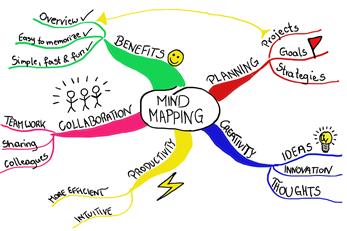Business Plan Guide
“Planning is an important process: it is much more fun to do something. The nicest thing about not planning is that failure comes as a complete surprise, rather than preceded by a period of worry and depression”. Sir John Harvey-Jones Business Guru.
Business planning is vital, because without it a business has no direction. Planning is how you will make the most efficient use of your resources – cash, equipment, manpower and time. Your plan needs to cover short, medium and long-term aims, from day-to-day dealings to wherever you are heading in the future.
Why write a business plan?
Often business plans are written with a view of raising finance either through banks, Venture Capitalists, Business Angels or for a grant application. But most importantly the plan should be written for you, to help focus on the future and to direct your ideas. The business plan should be reviewed and re-applied throughout the lifetime of the business. Often it is a good idea to write a whole life plan which includes both personal and business issues – writing it all down can help to clarify the situation and help to separate business from personal life. The business plan can be extracted for professional purposes.
What lenders will want to see?
If the plan is being written with a view of raising finance it is important to understand what the lender will be looking for. Financial forecasting is always important because this will indicate the level and type of borrowing required but this must be supported by evidence of viability, clear goals and how they will be achieved. Confidence in your ability to manage the business effectively is also important. Lenders want to see specific information relevant to your current proposition.
A written plan is not all that the lender will be considering. Your personal presentation of the plan is also important – after all you want to persuade them that you have the ability to drive the business forward.
What should the plan contain?
If a plan is to be used to raise finance, only matters relating to the business should be included and it should be specific. Make sure that everything cross references e.g. if you plan to run a series of Google ads make sure that the cost is included in the financial forecast. Consider your constraints, usually time and money, and remember that there are only 24 hours in a day and 7 days in a week and that there may be just you are carrying out many of the tasks!
Plans should remain flexible, as new opportunities, which could not have been anticipated, are likely to present themselves. When this happens, it is important to consider how it fits in with your long-term goals and the impact that it may have on other areas of business.
How to present the plan.
Business plans are usually prepared in report style with clear headings and references to appendices. The executive summary is important because having read it, it is hoped that enough interest will be raised to continue with the rest of the document. Financial information is usually at the end followed by appendices showing research and other relevant information to support the contents of the plan. A full plan for a start-up business will usually contain between twelve and fifteen pages.
The guide is to be used when writing your business plan but do keep in mind that there may be other areas of importance that have not been included depending on the type of business you have in mind. Alternatively, some things that have been included may not be particularly relevant to your situation but it is better to include a statement saying why they are not relevant rather than allow it to be seen as an oversight.
“Whenever you see a successful business, someone once made a brave decision”.
Drucker, Peter, F
Business Plan Guide
Executive Summary
The aim of the summary is to gain the full attention and interest of the reader. It should be an overview of the plan with reference to key people, the main objectives and how these will be achieved. The executive summary should be written last but will appear at the front of the plan.
Introduction
This is where we give background information; discuss the concept and the rationale for starting the business. Business status e.g. sole trader, partnership or Ltd. Company could also be noted here.
Products/ Services
Try to make clear what it is that you are offering whether products if you are producing something or the service you intend to provide. Is it just a product or service that you are offering or is it a lifestyle statement or a totally new concept? What are the main features and benefits of the product/service?
Premises
‘Location, location, location’. Deciding where to set up a business is a major decision. Do you need to be high profile? Does your image require you to operate from a prestigious office or from a high street outlet? Do you rely on foot traffic? Would customers track you down no matter where you were trading from? Do clients need to visit your premises or is it simply a base? Can you work from home?
If you are leasing or renting premises it is important to be quite clear about what your responsibilities are e.g. who is responsible for fire and security systems? Are they included or is this an expense that you need to consider?
Working from home is the cheapest option but there can be drawbacks especially if you are used to working with other people. You may find you miss the interruptions and some of the disciplines. If you are intending to work from home it is important to check with the local authority to see if you need planning permission or whether business rates apply.
Equipment
What equipment do you need to get started? It is sensible to buy only what is essential in the early stages with planned introduction for other items. Do you need to buy new? Sometimes second hand will do very well until some income has been generated or the expenditure has been fully justified.
Leasing of larger equipment should be considered as this will help to spread the cost and may enable you to buy newer, better, more efficient equipment than you could otherwise have considered.
Suppliers
Who will supply you with goods and materials, what kind of credit agreement have you negotiated with them? Have you selected your suppliers for ethical or environmental reasons? (Your customers may select you for these same reasons).
Mission Statement
A mission statement is an explanation of the vision and purpose of your business, it captures the culture and what it is that is special about what you are offering. Many large organisations have a mission statement with a strap line, and you will see this used in much of their advertising. If ever you feel that you are moving off track it can help get you back on target.
Your Vision and Goals
It is important that you have clearly defined goals; it is then possible to work out one step at a time how they can be achieved, working continuously towards your vision. You may have a very clear vision, or this may develop as you gain more confidence in yourself and what you are able to achieve. Remember when setting your goals to be specific following up every statement with how, where, why and when they will be achieved. The goals should also be measurable and may include turnover, personal income, number of employees or number of clients by a specified time. Be realistic about the length of time different stages will take. You should include short term goals (1-2 years), medium term (2-5 years) and long term (5 years plus).
Marketing
Who and where are your customers? Who are your competitors? More importantly will the clients you are targeting buy what you are offering? Marketing is about understanding who your customers are and how to communicate with them. A marketing strategy should be central to your business plan, it is essential that you know where the sales will come from and to have a planned approach with joined up thoughts. Innovative marketing ideas are what will set you apart from the competition. A large section of the business plan should be dedicated to marketing with the following headings:
- Market research
- Competition
- Your USP (unique selling point)
- Image/Branding
- Advertising
- Sales
- Website
- On-line marketing
- Social Media
- Networking
Skills Analysis
What skills does your new business need? What skills do you and the key people in the business already have? Is there a gap to be filled between the two? Having identified the gaps, you can plan how they will be filled.
Training Needs
When employed within an organisation there is usually a training program in place so that skills can be constantly updated and developed. When working for yourself it is important to continue with personal development and the best way to do this is to draw up a personal development plan setting targets for realistic achievement. This should include developing business skills.
If you employ staff, training them will not only make them better at their job but shows that you value them. A highly motivated workforce is of the greatest value to any business, it’s worth considering your own situation as an employee, what made or would have made you give that little extra to the organisation.
Business Administration and Use of Technology
Who’s keeping the books? There is usually more to administration than just keeping the books but it’s a good starting point for discussion. Financial control of the business is important, and this means keeping the accounts up to date. If you are VAT registered and submit a quarterly return you have a built-in discipline usually four times a year.
As you begin to build a client base it is useful to record client information for future analysis. Good CRM (customer relationship management) will help retain customers, identify trends and opportunities. Software packages are available for this purpose although simple databases can also be effective.
You must also be prepared to deal with other queries and enquiries that come via e-mail or telephone. It is important to recognise the time commitment needed and if you are busy with paperwork you are not earning money. A balance is needed to manage and maintain control of the business and at the same time generate an income.
Are you aware of changing technologies and how they can be effectively used within your business?
Trade/ Membership Associations
Membership of trade associations can have many advantages – they keep you up to date with industry specific news, legislation, new philosophies and much more. Many offer access to sources of information such as library services and often free legal advice. Insurance for members has often been negotiated at a competitive rate too.
Some membership or trade associations offer accreditation with qualified membership, this is usually worth seeking, as it will give greater credibility in the early days of business while you are trying to establish yourself, it will also give you additional confidence.
Insurance and Legalities
The only type of business insurance that is enforced by law is Employers’ Liability insurance, otherwise you are not legally required to have any insurance but it would be foolish for a business to operate without the covers most relevant to its industry. Often a Membership or Trade Association will offer the relevant insurance for your business at very competitive rates.
Legalities may include contracts, e.g. terms and conditions, partnership, shareholder. You may need a licence or to operate within the regulations imposed by Environmental Health, Planning or Trading Standards.
Personal Survival
Businesses usually take longer to establish than anticipated. This means that it may be some time before satisfying levels of income are generated, personal survival is often an area which is overlooked. If this is a concern it is a good idea to calculate income and expenditure for the past year and consider any areas that you can cut back in if necessary. Look at your options such as mortgage holidays or a break in loan repayments if it seems they may be necessary.
Finance
Lack of financial control is one of the main reasons for business failure. Your business plan should include a financial statement – a couple of paragraphs that explain your reasons for seeking investment, the amount of personal capital you have invested or plan to invest and any grant or loan applications. How credit control will be handled and the procedures that you have in place may also be included.
A breakdown of start-up costs, sales, cash flow and profit and loss forecasts will be necessary and are usally produced on spreadsheets. Download a template for financial forecasting HERE.
Contingency Planning- What if…
So, what could go wrong? Insurance can cover some of the financial consequences of disaster but there are many things that you need to consider that will prevent disruption to your business and loss of valued custom. Make a list of possible threats to your business whether environmental, political, technological or personal and plan how you will deal with each situation.
Do you need mentoring through the planning process to help get started in business? Contact us.




